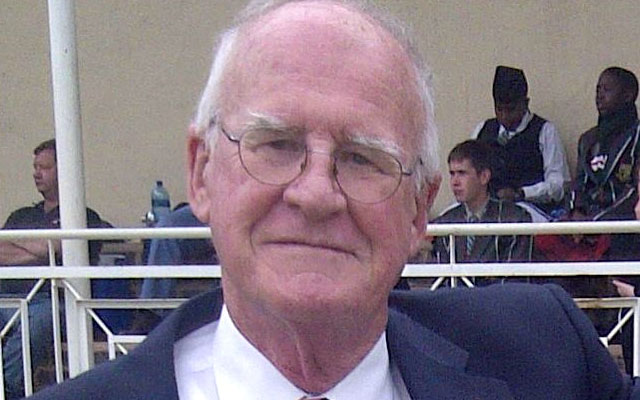
Prof Duncan Charles Baker, a well respected South African engineer, educator and volunteer, passed away on 12 March 2016. He was 77.
Baker, who was born on 5 September 1938 in Grahamstown, counted among his achievements the development of a multi-segmented quasi-parabolic ionospheric electron density distribution model for communications research applications.
He joined the South African National Antarctic Expedition as an ionosphericist, on the maiden voyage of South Africa’s first Antarctic supply ship in 1961-1963.
He headed ionospheric research at the National Institute for Telecommunications Research at the CSIR from 1969 to 1982, and then moved to the University of Pretoria until his retirement in 2003.
After retirement, he continued serving South Africa as a councillor for the City of Tshwane.
Baker was appointed as a Fellow of the Institute of Electrical and Electronic Engineers (IEEE) in 1998 for “leadership in engineering education in electromagnetic compatibility, computational electromagnetics and ionospheric propagation, as well as contributions to ionospheric modelling”.
He was later awarded a Life Fellowship.
The South African Institute of Electrical Engineers (SAIEE) acknowledged his professional work in 1995 when he was elected as a Fellow of the SAIEE.
He was chair of the IEEE South Africa Section in 1993 and held a number of positions through the years in the IEEE at various levels. He joined the SAIEE in 1980 and volunteered his time with them, too.
His recent efforts included his successful nomination of SpaceX and Tesla founder Elon Musk for the IEEE honorary membership, which was awarded last year.
“A great engineer and tireless volunteer, Baker will be missed by all who had the honour of working with him,” said Shaun Kaplan, the South Africa Section chair at the IEEE.
Baker’s funeral will take place on Friday, 18 March at 10h30 at the Brooklyn Methodist Church, 209 Murray Street, Brooklyn, Pretoria.

